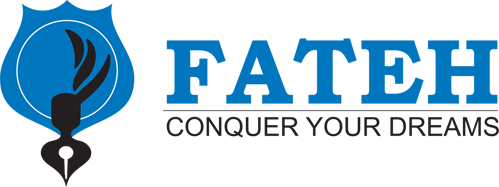Introduction
In today’s competitive professional landscape, pursuing a business degree isn’t just about adding another qualification to your CV—it’s about choosing a path that complements your ambition, experience and long-term vision. Among the most sought-after options are the MBA and the Executive MBA, both prestigious yet fundamentally different in design, audience and delivery.
Understanding the nuances in the executive MBA vs MBA debate is more than a matter of comparing course names. It’s about evaluating how each programme aligns with where you are in your career and where you intend to go. Whether you’re a rising professional weighing your next move or a seasoned manager aiming to sharpen strategic expertise, making an informed decision here can shape not just your education but your future trajectory.
This blog offers a detailed, research-driven comparison to help you navigate through overwhelming choices and identify the business degree that’s right for you.
Overview of MBA Programmes
The Master of Business Administration, more commonly known as the MBA, has long stood as a cornerstone qualification for aspiring business leaders. Rooted in the fundamentals of management education, an MBA is designed to equip individuals with a broad understanding of business operations, spanning areas such as finance, marketing, operations, strategy and human resources. It’s a comprehensive dive into the inner workings of organisations, ideal for those aiming to transition into leadership roles or explore entrepreneurial ambitions.
At its core, an MBA is structured around a series of foundational courses, usually delivered over one to two years, depending on the format. These modules often include managerial economics, organisational behaviour, business analytics and strategic management. Many programmes also offer specialisations, allowing students to delve deeper into areas like digital transformation, global supply chain management or sustainability. However, the overarching goal remains consistent—to nurture well-rounded professionals capable of navigating complex business environments.
The typical MBA candidate tends to be a young to mid-career professional, often with three to five years of work experience under their belt. They may be looking to change industries, move into managerial roles or gain an edge in a competitive job market. For these individuals, the MBA provides a structured and immersive way to sharpen both hard and soft skills.
When examining the executive MBA vs MBA conversation, it’s essential to grasp this baseline structure. The MBA represents a more traditional academic path, yet its flexibility and global relevance keep it persistently in demand across sectors.
Overview of Executive MBA Programmes
An Executive MBA, or EMBA, isn’t simply a variation of the standard MBA—it’s a programme purpose-built for professionals who bring substantial work experience to the table. Tailored for mid- to senior-level managers, executives and entrepreneurs, the executive MBA focuses on refining leadership capabilities while allowing students to apply learning directly to their ongoing roles. Its education is designed not as a pause in your career but as a strategic enhancement alongside it.
EMBA programmes are typically delivered in flexible formats—weekend sessions, intensive modules or hybrid setups—to suit the demanding schedules of working professionals. While the curriculum shares similarities with a traditional MBA, its teaching approach leans heavily on peer learning, real-time application and executive-level strategy. You’re not just learning frameworks—you’re stress-testing them against your daily challenges at work.
Unlike a conventional MBA that often includes fresh perspectives and theoretical grounding, the executive MBA assumes a baseline of experience and maturity. Class discussions are shaped by a cohort of seasoned peers, many of whom bring insights from across industries and global markets. This dynamic creates a learning environment that’s less about theory-building and more about sharpening judgment and decision-making.
When exploring the executive MBA vs MBA question, it’s essential to recognise how the EMBA aligns with professionals who aren’t looking to step away from their careers, but rather, accelerate within them.
Distinguishing Factors Between EMBA & MBA
1. Student Profile
An MBA is generally pursued by early to mid-career professionals, often with 3–5 years of experience. These students may be pivoting industries or stepping into managerial roles for the first time. In contrast, EMBA candidates usually bring 10–15 years of experience, often holding senior roles and managing teams or departments. The executive MBA vs MBA distinction begins sharply here, with experience shaping both the classroom and the outcomes.2. Curriculum Focus
While core subjects overlap—strategy, finance, marketing—the EMBA curriculum leans towards leadership, change management and executive-level decision-making. It draws from real-time work contexts, making learning more applied than academic. MBA programmes offer more foundational theory, electives and experiential learning for those still building their management toolkits.3. Programme Duration and Delivery
Full-time MBAs generally span 12–24 months and demand a career break. EMBAs, however, are structured around modular or part-time formats, allowing students to learn while they work. The learning environment in an EMBA is often more intense, compressed and collaborative.4. Peer Group and Networking
MBA cohorts tend to be diverse in background and industry but younger in professional maturity. EMBA cohorts are often industry leaders, offering a network that reflects boardroom-level influence.5. Admissions Criteria and Employer Involvement
EMBA programmes often involve more rigorous admissions processes, with interviews and employer endorsements playing a crucial role. Some organisations even sponsor their employees, viewing it as a strategic investment. In contrast, MBA applicants primarily go through standardised testing, academic evaluations and personal statements, with less reliance on employer backing. In the executive MBA vs MBA choice, these nuanced differences—across structure, community and intent—can significantly shape your academic experience and professional outcomes.Comparing Costs and Return on Investment
Choosing between an executive MBA vs MBA isn’t just an academic decision—it’s a financial one too. While both programmes are considered premium investments, they differ significantly in cost structure, funding options and how quickly returns are realised.
1. Programme Costs
Full-time MBA programmes at top global institutions can cost anywhere between ₹30–70 lakhs or more, especially when factoring in living expenses, international travel and the opportunity cost of stepping away from work. In contrast, Executive MBA programmes, though sometimes priced even higher, often come without the added burden of lost income since participants continue to work while studying.
2. Employer Sponsorship and Financial Support
EMBA students are more likely to receive partial or full sponsorship from their employers, especially when the organisation views the programme as a long-term leadership development tool. MBA students, however, tend to rely on education loans, scholarships or personal savings.
3. Return on Investment (ROI)
MBA graduates typically experience a sharp jump in salary post-graduation, particularly those from globally ranked schools. However, this ROI can take a few years to fully materialise. For EMBA graduates, salary growth is often subtler but consistent, as promotions or strategic career moves happen organically within their current trajectory.
4. Long-term Value
The true ROI of both programmes extends beyond pay checks. For many, it’s about enhanced credibility, access to elite networks and the confidence to take on complex leadership roles. The value is deeply personal and often evolves over time.
5. Career Risk and Flexibility
An MBA often involves greater financial and career risk due to the need for a study break. Having a compelling statement of purpose for MBA is crucial for highlighting your motivations for taking this path. The EMBA, by contrast, offers a lower-risk route as students can immediately apply new skills at work without disrupting their careers. This makes it an attractive option for those unwilling or unable to hit pause on their professional momentum. Ultimately, the executive MBA vs MBA decision isn’t just about what you spend—it’s about what you stand to gain and how you define value in the long run.
Choosing the Right Programme for You
1. Career Stage and Professional Experience
If you’re early in your career, aiming to build foundational skills or switch industries, a traditional MBA may offer more room for exploration. On the other hand, if you’ve accumulated a decade or more of experience and are looking to level up your leadership game without stepping off the ladder, an EMBA is likely a better fit.2. Time Commitment
Full-time MBAs require significant time away from work and often, relocation. Executive MBAs offer more flexible schedules—weekends, evenings or modular blocks—allowing professionals to balance study with their existing roles.3. Financial Factors
Consider not just tuition but also the hidden costs—living expenses, career breaks, travel and opportunity cost. If stepping away from a stable income isn’t feasible, the EMBA’s structure makes it a more financially manageable path.4. Learning Environment
Do you thrive in a more academic setting with diverse age groups, or do you prefer learning from peers with senior-level experience? The classroom dynamic differs greatly between the two.5. Career Goals and Mobility
If your goal is a significant career pivot—perhaps moving abroad, entering a new industry or shifting functional roles—an MBA offers the structure and recruiting support to facilitate that leap. Conversely, if you’re aiming to rise within your current organisation or industry, an EMBA can strengthen your leadership credentials without disrupting your momentum. In the executive MBA vs MBA decision, self-awareness is key. Align the programme with where you want to go, where you are now, and the reality of what you can give to the journey.Conclusion: Making an Informed Decision
Choosing between an executive MBA vs MBA isn’t a decision to rush—it’s one that should reflect your career trajectory, personal priorities and long-term vision. Throughout this guide, we’ve explored how each path serves a different purpose: the MBA offering a reset or redirection, while the EMBA enhances and accelerates an already established journey. Understanding the benefits of studying abroad can help you make a more informed decision about which program aligns with your career goals.
From costs and class dynamics to curriculum focus and programme format, each element plays a role in what the experience will mean for you. If you’re considering international education options, a comprehensive UK vs USA study comparison can provide valuable perspective on which country might better suit your MBA goals. What matters most is that your choice supports your goals, fits your lifestyle and adds real, lasting value.
Take the time to reflect, compare and consult. Speak with alumni, review programme structures and don’t hesitate to seek expert advice. The right programme doesn’t just teach business—it helps shape the kind of professional you aspire to become. Still unsure? Our team at Fateh Education is here to help you think it through—strategically, not just academically.FAQs About Executive MBA vs MBA
Not necessarily—it depends on your career stage. An EMBA suits experienced professionals seeking leadership growth without pausing their careers, while an MBA is ideal for early to mid-career individuals looking to pivot, upskill or explore new industries.
The EMBA’s intensive schedule can be challenging to juggle with a full-time job. It also offers fewer internship or placement opportunities compared to a traditional MBA, which may matter if you're considering a major career shift.
For professionals aiming to accelerate within their current field or organisation, an EMBA can be highly valuable. The peer network, strategic insights and leadership development often translate into long-term career growth.
Generally, yes. Executive MBAs offer structured, interactive learning with strong peer engagement and faculty access. Distance MBAs tend to be more self-paced and lack the real-time collaboration that many executives value.
EMBAs often come with premium faculty, international modules and exclusive networking opportunities. You're also paying for the flexibility of studying while working, along with tailored executive-level content.


